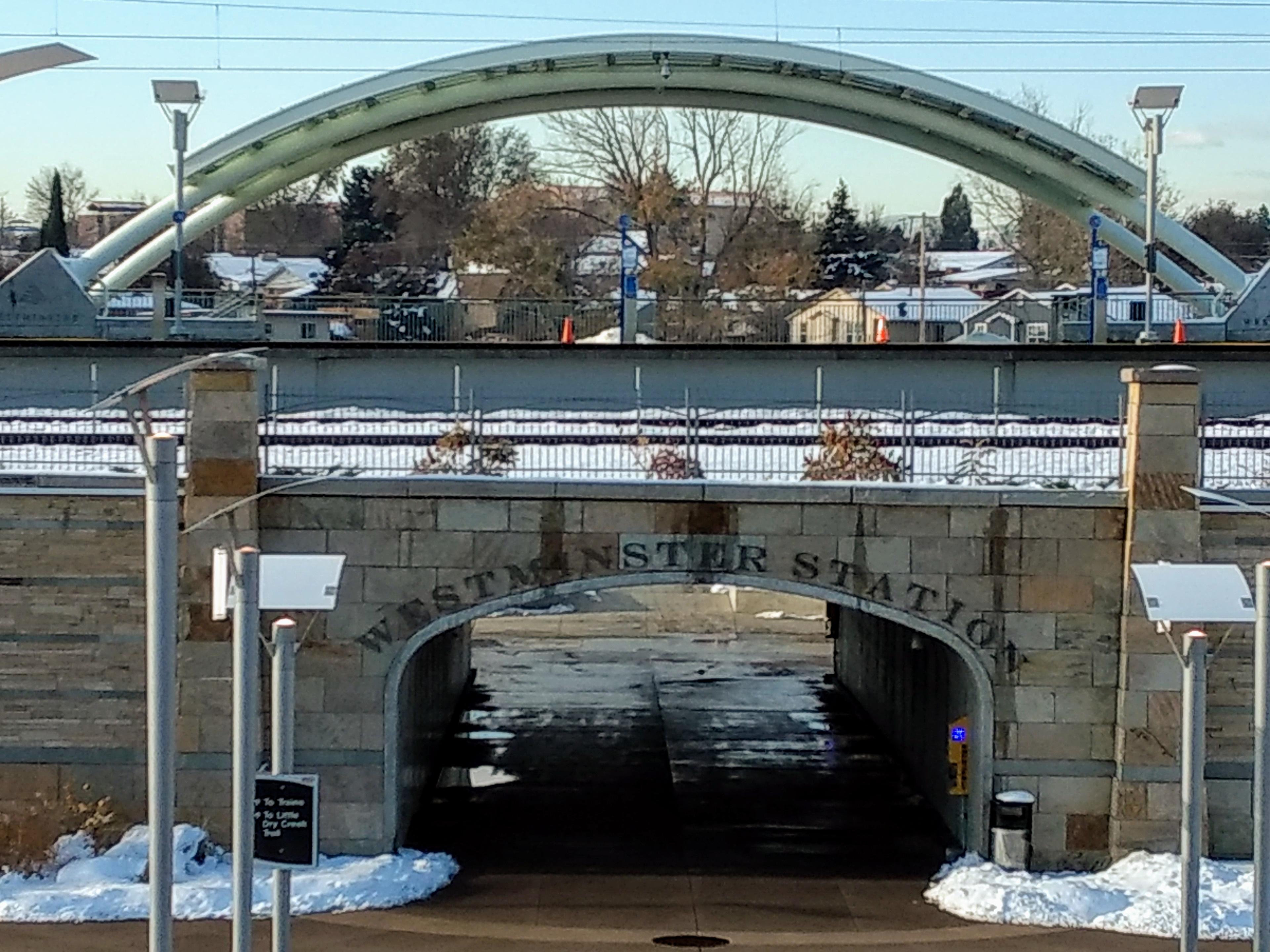The Urban Land Conservancy, a Denver-based real estate nonprofit, has snapped up transit-oriented property in Westminster on which it envisions a development with homes for both renters and buyers and its signature mix of uses and income levels.
The Urban Land Conservancy is chiefly known for multi-family rentals where prices are kept permanently below market rates. Debra Bustos, senior vice president of the nonprofit, said low-cost housing for sale also is planned for the 5.5 acres she just purchased near Westminster Station on RTD's B Line connecting the suburb on the northwest edge of Denver to Union Station.
"We don't have a lot of affordable housing along the transit corridor that is home ownership," Bustos said. "We think that's what's missing."
Some of the housing will be offered at market rates. Bustos said offering housing for a range of incomes "creates a better balance for the community."
The Urban Land Conservancy also includes in its developments space for community centers and clinics as well as for small businesses that might otherwise struggle to stay in some neighborhoods, just as families are sometimes displaced when neighborhoods change.
"That diversity in what they (Urban Land Conservancy) can bring to the table is really nice," said Jenni Grafton, the housing and transit-oriented development manager for Westminster's city government.
The site is in a 58-acre area where Westminster officials expect major growth and investment in coming years, in part because it is anchored by the transit station. The area is bounded by Federal and Lowell boulevards, 72nd Avenue and parkland south of the railway line.
The Urban Land Conservancy's site combines neighboring plots at 3440 W. 71st Place and 7100 Lowell Blvd. It is near ALTO, a new 70-unit development by Unison Housing Partners, once known as the Adams County Housing Authority, where rents are kept within reach of households earning no more than 60 percent of the area median income. Also nearby is the site where Denver's St. Charles Town Company plans to develop 216 one-, two- and three-bedroom units attainable for households earning between 30 and 60 percent of the area median income.
The Urban Land Conservancy generally retains the land it acquires and makes it available to developers on 99-year leases that are automatically renewed for another 99 years. The land is a major cost for developers. The conservancy's model means significant savings can be passed on to tenants, and the affordability is permanent.
The nonprofit founded in 2003 recently helped launch Elevation Community Land Trust. Elevation develops projects in which the land is held in trust not by one entity like the Urban Land Conservancy, but communally by low- and moderate-income households that each own individual homes on the land. Elevation is expected to be involved in the new Westminster development, said Erin Clark, Urban Land Conservancy's vice president for master site development. For-profit developers will also have a role, she said.
Whatever the development looks like, it will be some time before it emerges, Clark said. She wants to first understand what has already been built in the area and what else might be coming so that her nonprofit fills a need rather than duplicating what others are doing.
"We're going to want to do a lot of leg work up front," she said. "I want to get to know this community."
In addition, other projects are claiming Clark's attention. The Urban Land Conservancy has been on a buying spree since a $50 million revolving loan facility was launched late last year to support its activities. The Westminster purchase was the sixth to use the Metro Denver Impact Facility, a partnership of the Urban Land Conservancy, FirstBank, Colorado Health Foundation, The Denver Foundation, the Colorado Trust, Colorado Housing and Finance Authority and The Piton Foundation.
The conservancy also has land purchased even earlier it is working to develop. It can take years, even with the cost of land taken out of the equation, to put together financing.
The Urban Land Conservancy and its partners earlier this year broke ground on a 66-unit complex near the 38th & Blake Station on RTD's A Line intended for tenants earning no more than 60 percent AMI. Bustos, who purchased that plot in 2011, noted it took several tries to obtain the tax credits that made that development possible.
Bustos said her nonprofit was focusing on properties "we already own and need to get developed so they can start responding to the housing need."
Most of those properties are in Denver. Purchases in recent years in Westminster as well as Lakewood, Commerce City and Aurora demonstrate a need for affordable housing throughout the region as well as the increasing challenge of finding affordable real estate in Denver.













